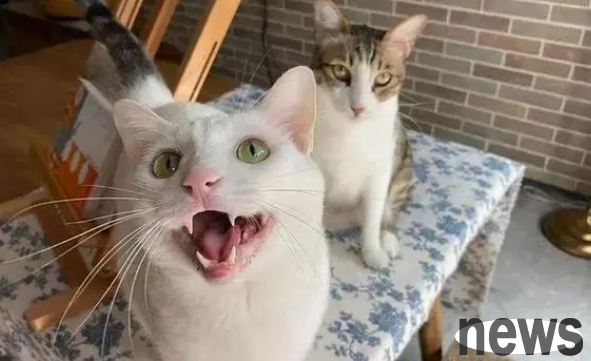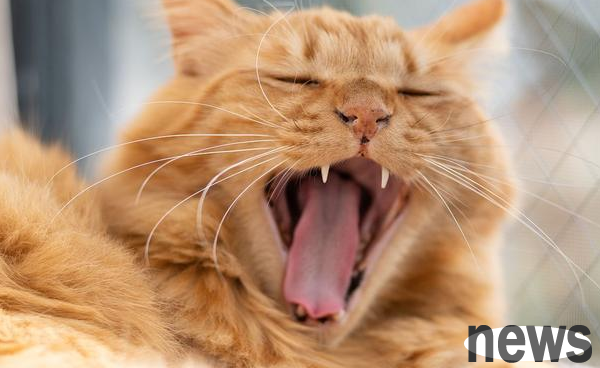It may be troublesome to have cats kept calling, but in fact there may be many reasons behind this behavior. Cats are a way to express their emotions and needs, conveying their feelings and needs through calling. To understand why cats keep calling,...
It may be troublesome to have cats kept calling, but in fact there may be many reasons behind this behavior. Cats are a way to express their emotions and needs, conveying their feelings and needs through calling. To understand why cats keep calling, they need to consider their physiological and psychological needs.
1. The cat may be hungry or thirsty when it is always chirping
The cat may express its need for food or water by chirping. If the cat is yelling at a fixed feeding time, it may be because it feels hungry or thirsty. At this point, you can check whether the cat has enough food and water and give them on time. In addition, consider providing cats with automatic feeders and water fountains to ensure that they have food and water to eat at any time. If the cat continues to scream and is not caused by hunger or thirst, other reasons may be needed and consult a veterinarian if needed.

2. The cat may be calling because it is trying to seek attention. It may be because it feels lonely, bored, or wants to interact with its owner. Cats are social animals that need to interact with their owners and other animals to meet social needs. If the cat is often called and tries to attract the attention of its owner, consider increasing the time to interact with it, such as playing, touching, or simply communicating. Providing a wide variety of toys and activities can also help alleviate the boredom of the cat. In addition, establishing regular daily life and feeding time will help make the cat feel safe and stable and reduce unnecessary shouting behaviors.
3. The cat may be a courtship or a petting
The cat may be a petting to express its intimacy with its owner, hoping to be petted or accompanied. Cats are animals that like to get close to humans, seeking their owner's attention and interaction by calling. If a cat tries to approach the owner and rub when he is calling, it usually means that they desire to get close and communicate. In this case, the cat can be given enough care and caress to meet their intimate needs. Establishing a good interactive relationship with the cat can strengthen the emotional bond between the owner and the cat, making them feel safe and satisfied.
4. The cat may be screaming because of pain or discomfort.
The cat may be screaming because of physical discomfort or pain, such as indigestion, joint pain, etc. Cats usually try to express their discomfort by calling, which may be accompanied by other symptoms such as loss of appetite, abnormal bowel movement, and reduced activity. If the cat continues to scream and these symptoms occur, you may need to seek medical attention in time. Veterinarians can conduct a comprehensive physical examination of the cat, determine the cause and formulate corresponding treatment plans. Detecting and handling potential health problems early can help cats recover as soon as possible, reduce pain, and reduce unnecessary shouting behavior.
5. The cat may be sick or aging. Old or sick cats may sometimes be yelling due to discomfort. As the cat gets older, the physical functions of the cat gradually weaken and it is prone to various health problems, such as arthritis, dental problems, kidney diseases, etc. These health problems can cause cats to feel pain or discomfort, which can manifest as abnormal calling behavior. In addition to old age, some chronic or acute diseases may also cause cats to scream when they are uncomfortable. In this case, it is very important to seek medical treatment promptly and receive professional treatment. Veterinarians can formulate treatment plans based on the cat's specific condition to help cats relieve pain and discomfort and improve their quality of life.

6. The cat may be yelling because of environmental changes
The cat may be uncomfortable with changes in the environment, which is manifested as being yelling. Cats are habitual animals that may feel nervous or upset about changes in their environment. For example, moving, family member changes, furniture arrangement changes, etc. may cause cats to experience anxiety and discomfort, which manifests as abnormal shouting behavior. In this case, cats can be helped to adapt to the new environment by gradually introducing changes, providing a sense of security, and maintaining the stability of daily life. Giving cats enough sense of security and care can help reduce their anxiety and reduce the occurrence of shouting behavior.
When dealing with the problem of continuous cat call, the key is to comprehensively consider various possible reasons and try to find suitable solutions. Whether providing enough food and water, increasing interaction and care, or seeking medical treatment in time to treat diseases, it is an important step to help cats reduce their beating behavior. By understanding the needs and emotions of cats, we can take better care of them and let them live a happy and healthy life.